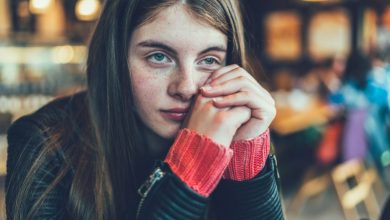bipolar
10 Alternative Bipolar Treatments
Individuals with bipolar disorder have reported that using alternative treatments provides relief from symptoms. In treating depression, scientific evidence supports lots of the advantages when using alternative bipolar treatments. However, the efficacy of treating bipolar disorder needs to be studied more closely.
Always check with your health care provider before starting any alternative treatments. Nutritional supplements and remedies might interact with your prescription medication and cause side effects. Alternative treatments should not replace conventional treatments or drugs. When combining alternative treatments and prescription medication, some people have reported better outcomes. Below are some great alternative bipolar treatments.
Treatments
Fish Oil
Fish oil and fish are the best sources for omega-3 fatty acids. The chemicals can impact mood disorders. Individuals with depression generally have lower degrees of omega-3 fatty acids in their blood. Omega-3 fatty acids can help mood disorders:
- Reduce aggression and irritability
- Keep mood equilibrium
- Reduce depression symptoms
- Enhance brain function
- You are able to take fish oil supplements to help achieve this daily volume.
Rhodiola Rosea
Rhodiola rosea can help treat mild to moderate depression. Rhodiola rosea is a mild stimulant and can lead to insomnia. Other side effects include nausea and vivid dreams.
Consult your health care provider before you use rhodiola rosea. Especially if you have a history of breast cancer. This herb might increase your chance of prostate cancer.
S-adenosylmethionine
Research has shown that S-adenosylmethionine is a supplement form of a chemical that naturally occurs in the body. This amino acid supplement may be effective for bipolar disorder and can be good for depression.
Some doses of this nutritional supplement can cause side effects such as triggering episodes. Speak to your physician about appropriate dosages, and inquire about how S-adenosylmethionine may interact with other drugs you take.
N-acetylcysteine
This antioxidant helps decrease stress. A study reported in a single randomized controlled trial of individuals with bipolar disorder that combined with 2 g of N-acetylcysteine daily resulted in considerable improvement in depression and mania. It resulted in a high quality of life.
Choline
This vitamin might be effective in people with rapid cycling bipolar disorder with symptoms of mania. Outcomes of one research of six individuals with rapid cycling bipolar disorder who received 2,000 mg – 7,200 mg of choline daily (in addition to therapy with lithium) suggested reduced manic symptoms.
Inositol
Inositol with a combination of other forms of treatment can help patients fully recover from their manic episodes. Studies showed that after symptoms subsided patients experienced no symptoms for 8 months.
St. John’s Wort
Studies have shown that St. John’s Wort relieve patients with mild to moderate depression. It has been used in European countries for centuries. St. John’s Wort can affect a number of brain chemicals namely seratonin. This helps relieve the bipolar symptoms of depression. St. John’s Wort can also help with sleep.
Calming Techniques
Individuals with bipolar disorder suffer from anxiety. Several alternative treatments aim to decrease stress.
- Massage treatment
- Yoga
- acupuncture
- meditation
- Calming techniques can not cure bipolar disorder. But they might help you become a part of your treatment program and manage your symptoms.
Intrapersonal And Social Rhythm Therapy (IPSRT)
Sleep deprivation can worsen symptoms of bipolar disorder. IPSRT is a kind of psychotherapy. It aims to assist individuals with bipolar disorder to:
- Keep a regular routine
- Embrace good sleep habits
- Learn to resolve Issues That disrupt their regular
IPSRT along with prescribed bipolar medications might help to lessen the amount of depressive and manic episodes you have.
Lifestyle Changes
Though lifestyle changes will not cure bipolar disorder, changes can improve your therapy and help stabilize your mood. These modifications include:
- Routine exercise – Routine exercise can help stabilize and boost mood because of the natural endorphins it releases.
- Sufficient Sleep – Sleep helps decrease and stabilize your mood.
- Healthy foods – Healthy food helps because your body does not have to process sugars and processed foods.
Takeaway
Research suggests that alternative treatments may be helpful for bipolar disorder when they’re used with medical treatments. Alternative treatments should not replace your therapy or drugs for bipolar disorder.
Always speak with your health care provider before starting any of the above alternative treatments. Certain supplements can cause side affects with your prescription medication.

